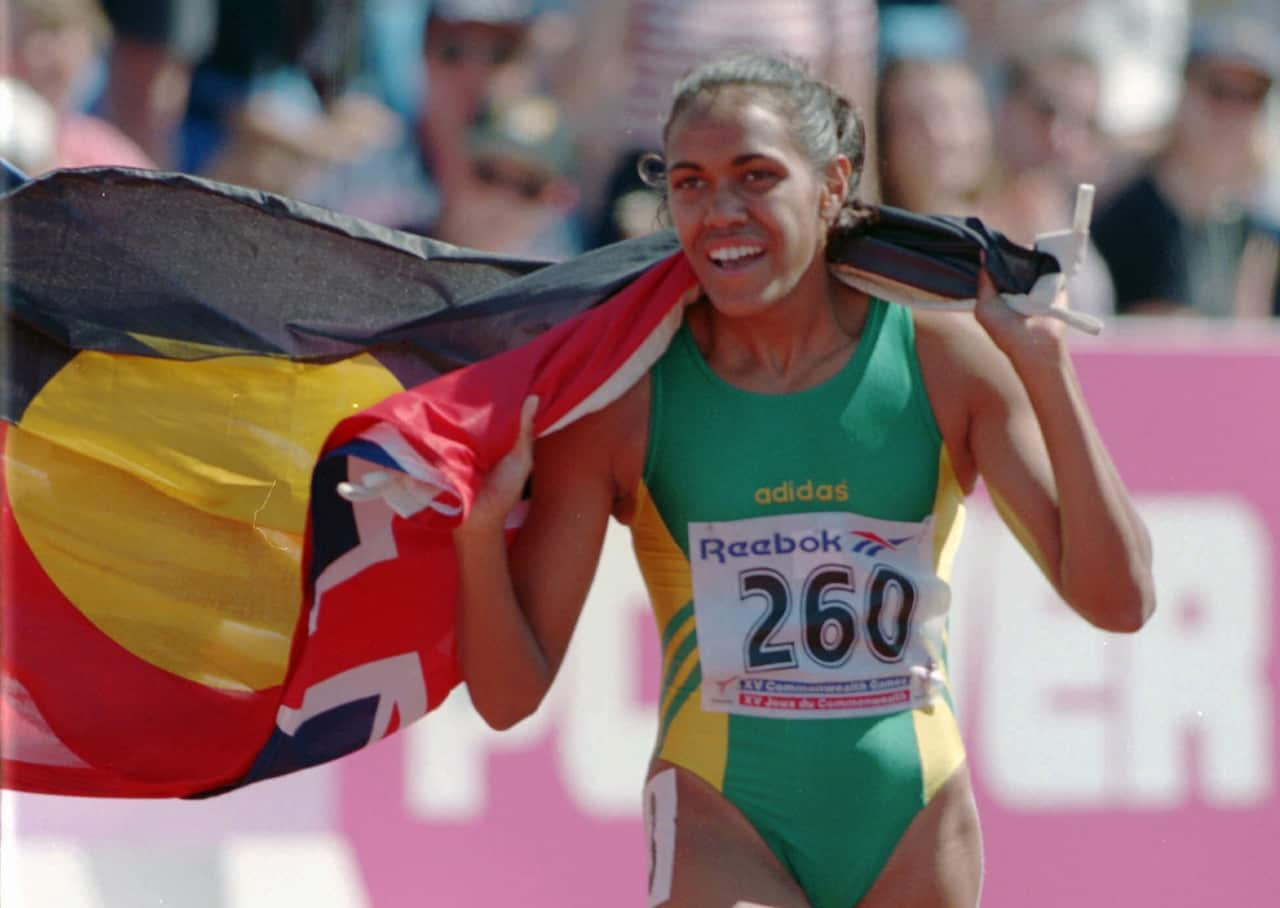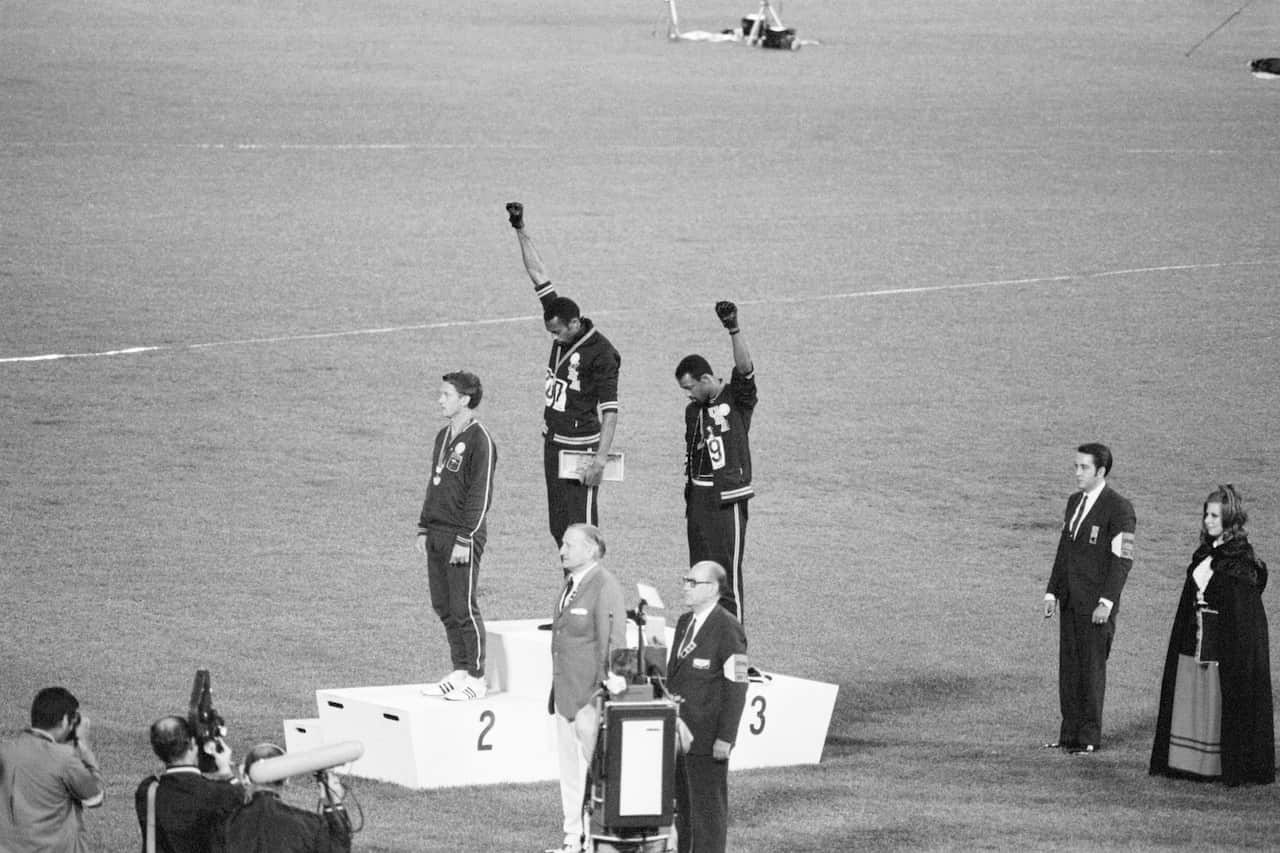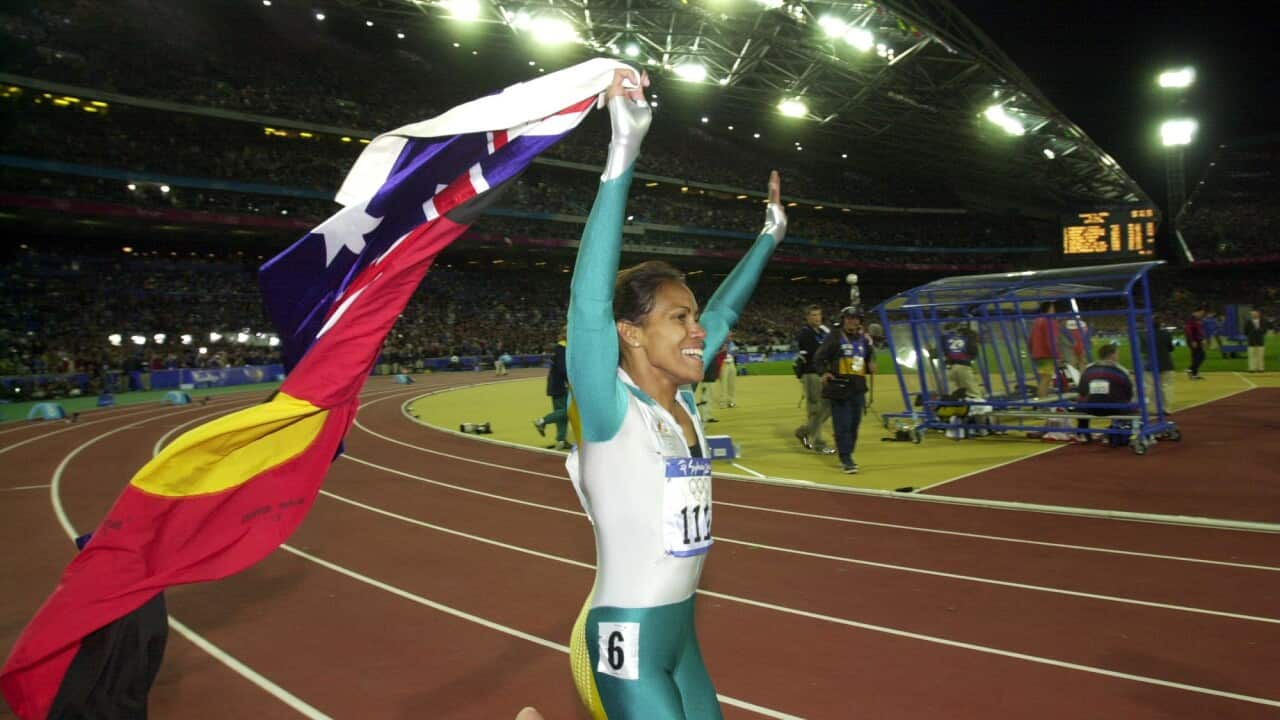Competitors at this year's Commonwealth Games in Birmingham will be allowed to take a knee or display a symbol in solidarity with a cause after organisers unveiled a set of "guiding principles" for athlete advocacy on Wednesday.
Athletes can wave an Aboriginal or Pride flag during a victory lap, raise a fist on the podium or speak out in favour of other social justice causes.
Hate messages and protests aimed explicitly at a specific organisation, person or country, however, are not permitted.
"It is the belief of the Commonwealth Games Federation (CGF) that athlete advocacy and activism humanises, rather than politicises, sport," president Louise Martin said.
"I am proud of our approach to help strengthen the athlete voice. We want to encourage the positive, not police the negative."
The CGF added that athletes were agents of change and ambassadors for "respect, impartiality and non-discrimination".
Athletes from around the world have chosen to take a knee to show their support for the Black Lives Matter movement.
Kuku Yalanji and Birri Gubba woman Cathy Freeman defied these rules in 1994 when she ran a victory lap carrying the Aboriginal and Australian flag on her shoulders.
Freeman carried the Aboriginal flag after winning the 400-metre final despite being aware of the rules. She repeated her actions when she won the 200-metre final days later.
The new principles are a departure from Rule 50 of the Olympic Charter that stipulates "no kind of demonstration or political, religious or racial propaganda is permitted in any Olympic sites, venues or other areas".

Kuku Yalanji and Birri Gubba woman Cathy Freeman carried the Aboriginal and Australian flag at the Commonwealth Games in Canada, 1994. Source: AAP / RUSSELL MCPHEDRAN/AP
"She should have carried the Australian flag first up, and [we should have] not seen the Aboriginal flag at all,” he told media.
The new rule change brings to light one of the most significant protests in Olympics history at the 1968 Olympics in Mexico.
The United States Olympic gold medallist Tommie Smith and bronze medallist John Carlos stood on the podium, barefoot and with their fists in the air.

Tommie Smith and John Carlos, gold and bronze medallists at the 1968 Olympics, engage in a victory stand protest against unfair treatment of African-Americans in the United States. Source: Getty / Bettmann/Bettmann Archive
They stood alongside Australian silver medallist Peter Norman who didn't raise his fist, but joined them in wearing a logo patch on his jacket for the Olympic Project for Human Rights.
The International Olympic Committee (IOC), however, relaxed the rules ahead of last year's Tokyo Games, allowing athletes to express themselves politically as long as their gestures were not disruptive and met certain other criteria.
The IOC also did not sanction Ukrainian skeleton slider Vladyslav Heraskevych at the Beijing Winter Olympics earlier this month after he flashed a "No war in Ukraine" sign, referring to the tense political situation with Russia.
The governing body said the 23-year-old's actions were a general call for peace.
The Commonwealth Games in Birmingham will run from 28 July to 8 August.
Additional reporting by Rayane Tamer.
Share


